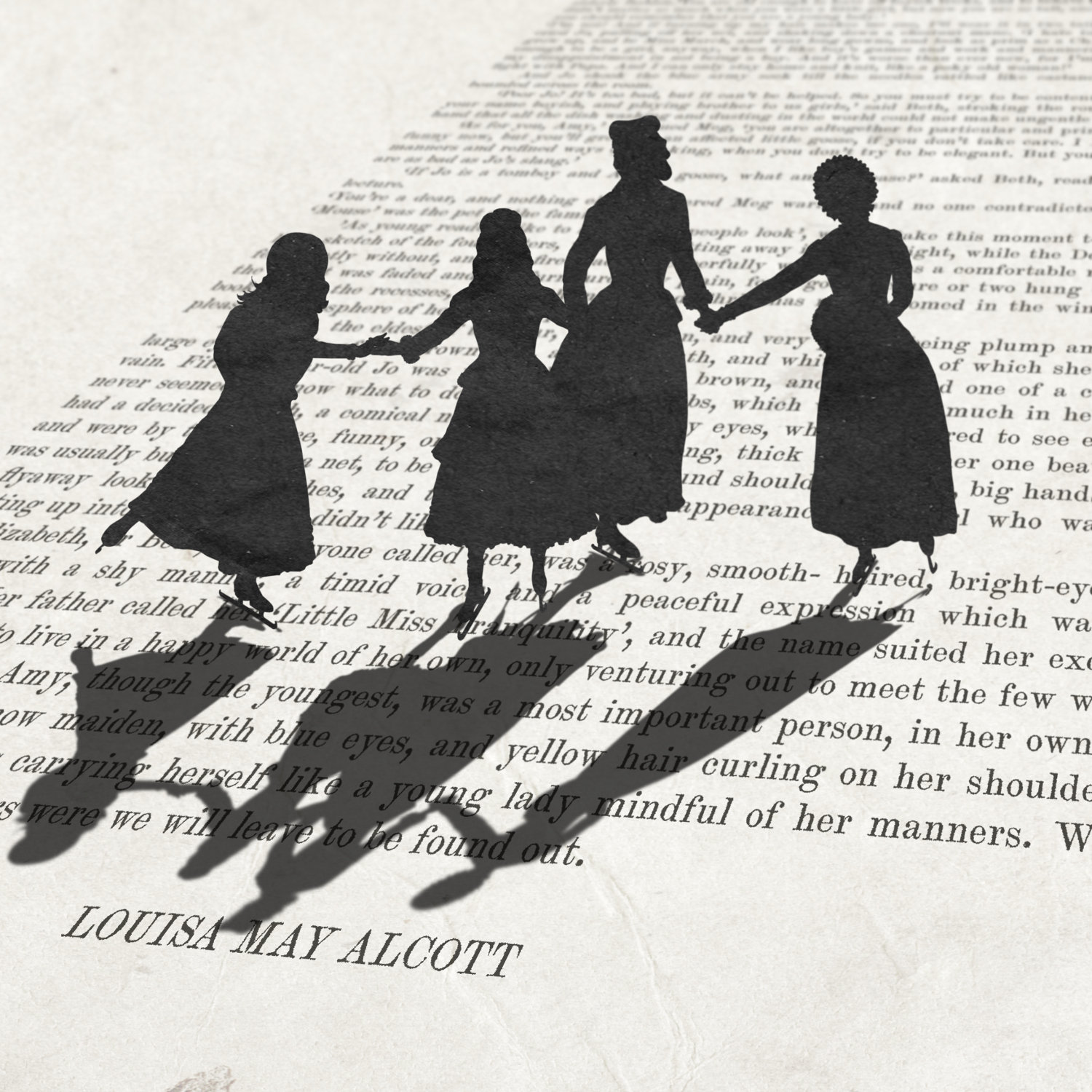I deeply believe our stories are conceived from a continuous dialectical dialogue between the feminine and the masculine; it begins before our first breathe and goes on during our growth, through the interweaving of spheres, people, experiences and openings.
I have to be thankful to many men I’ve met, who have given me the gift of discovering my diversity, the distance of my being from the Other, the richness of a (more) practical thinking.
But today, 8th March, I would like to say something about those women who, more than once, have saved me.
- Be Born
I guess it all started from when I was little, when the maternal gaze has begun to watch over me, over my choices, my falls, and over all those ups and downs that describe the carousel I got on and continuously spin.
The second most important woman in my world appeared when I was only two: she was so little, so chubby and different than me, but I remember me catching some similarities in our dance steps to the world; a feeling we were belonging to an equal way to play the game, same rules, same challenges. She was the first woman who thought me kindness and patience, values I am still struggling to make mine, in my being impulsive and directed.
- Be Discovered
It is so strange to think about the fact that, even if I’ve always considered myself to be masculine in some shades of my behaviour (I always think that if I was born a boy I could have applied infinite courtship techniques) my best friends, starting from my twenties, have always been girls.
At first, I think it was most a matter of curiosity towards their complex way to interpret the world, which was completely foreign from me, at that time. It ended up I threw myself into that approach so deeply that I discovered my “femininity”. Indeed, I was twenty-one years old when I found out my female thinking, and a lot of stuff changed from that time, including the mysterious birth of a yellow flower.
The new flower shot my mind so much that I wrote a thesis about another fundamental woman figure of my life: a tragic Greek princess. Antigone, whose sacrifice was understood only by the unwritten laws, whose death represented the rebirth of new openings, new possibilities.
- Be Unfolded
The openness Antigone introduced me started ripping my flesh and bones of my very being, touching the musical core of my-self. I think that was the reason why I started investigating its effects on a musical ability I was learning at that time: the art of improvising.
Improvisation has always been associated with jazz music, and I remember the first standard I learned to play was the version of “You don’t Know What Love is” by Ella Fitzgerald. Ella’s voice reminded me that tenderness, those gentle steps into a sphere so cruel and “blue” as the love I experienced, which have left me with anger, disappointment and fear. She taught me how to read my heart wounds with a conscious and calm resignation, giving the proper weight to the pain I had felt, that I was convincing myself to forget. Thanks to that very first song I recognized and accepted my vulnerability, reconsidering it not as something to hide, but to share with other hurt souls like me.
- Be Seen
Giving a title to this last paragraph is very premature, maybe it is what I wish to obtain during this stage of my journey. I cannot hide the fact that I miss so much the sweet maternal caress, the complete sister complementarity, the frivolousness chats and laughs with my girls, the inspirational heroism and voice of great thinkers and singers. I am stuck in a moment full of doubts and questions about my personality, not in the sense I’m deconstructing my beliefs, rather, I am wondering what the others see in me, if I am seen as a smart, beautiful and creative woman or maybe just as “someone like the others”.
Everything is new, challenging, this long hair doesn’t help me to recognize that impassive Artemis I thought I had become. I am not used to be driven by intense feelings anymore, and the possibility of falling is freaking me out.
But if there is one thing that I am sure I can rely on, is knowing my little women will always be there with open arms, telling me who I was and can continue to be: Jo March, the seagull, the woman I was enchanted by reading the novel by Louisa May Alcott, the masculine/feminine writer who first whispered me, when I was only seven: “Women, they have minds, and they have souls, as well as just hearts. And they’ve got ambition, and they’ve got talent, as well as just beauty. I’m so sick of people saying that love is just all a woman is fit for”. But growing up, I also learned Love is what drives women to fight, to care, to give away a piece of our-selves and get it back in a better shape. And that is why, as a woman, I will never stop pursuing and sing for it.
Italiano – Sorelle March
Credo profondamente che le nostre storie siano concepite da un continuo dialogo dialettico tra il femminile e il maschile; inizia prima del nostro respiro e continua durante la crescita, attraverso l’intreccio di sfere, persone, esperienze e aperture.
Devo essere grata a molti uomini che ho incontrato, che mi hanno fatto il dono di scoprire la mia diversità, la distanza del mio essere dall’Altro, la ricchezza di un pensiero (più) pratico.
Ma oggi, 8 marzo, vorrei dire qualcosa su quelle donne che, più di una volta, mi hanno salvata.
- Essere Nata
Credo che tutto sia iniziato da quando ero piccola, quando lo sguardo materno ha iniziato a vegliare su di me, sulle mie scelte, sulle mie cadute, su tutti quegli alti e bassi che descrivono la giostra su cui sono salita e che continuamente gira.
La seconda donna più importante del mio mondo è apparsa quando avevo solo due anni: era così piccola, così paffuta e diversa da me, ma ricordo di aver colto qualcosa di simile nei nostri passi di danza sul mondo; una sensazione di appartenenza a un modo uguale di giocare, stesse regole, stesse sfide. È stata la prima donna che mi ha trasmesso gentilezza e pazienza, valori che sto ancora lottando per farli miei, nel mio essere impulsiva e diretta.
- Essere scoperta
È così strano pensare al fatto che, anche se mi sono sempre considerata maschile in alcune sfumature del mio comportamento (penso sempre che se fossi nata maschio avrei potuto applicare infinite tecniche di corteggiamento) le mie migliori amiche, a partire dai miei vent’anni, sono sempre state ragazze.
All’inizio credo sia stata soprattutto una questione di curiosità verso il loro complesso modo di interpretare il mondo, che a quel tempo mi era completamente estraneo. Alla fine mi sono buttata così profondamente in quell’approccio che ho scoperto la mia “femminilità”. In effetti, avevo ventuno anni quando ho scoperto il mio pensiero femminile, e da quel momento sono cambiate molte cose, tra cui la misteriosa nascita di un fiore giallo.
Il nuovo fiore mi ha talmente colpito che ho scritto una tesi su un’altra figura femminile fondamentale della mia vita: una tragica principessa greca. Antigone, il cui sacrificio era compreso solo dalle leggi non scritte, la cui morte rappresentava la rinascita di nuove aperture, di nuove possibilità.
- Essere di-spiegata
L’apertura che Antigone mi ha fatto conoscere ha iniziato a lacerare la carne e le ossa del mio essere, toccando il nucleo musicale del mio io. Credo sia stato questo il motivo per cui ho iniziato a indagare i suoi effetti su un’abilità musicale che stavo imparando in quel periodo: l’arte dell’improvvisazione.
L’improvvisazione è sempre stata associata alla musica jazz e ricordo che il primo standard che imparai a suonare fu la versione di “You don’t Know What Love is” di Ella Fitzgerald. La voce di Ella mi ricordava quella tenerezza, quei passi gentili in una sfera così crudele e “blu” come l’amore che avevo vissuto, che mi avevano lasciato rabbia, delusione e paura. Mi ha insegnato a leggere le ferite del mio cuore con una consapevole e serena rassegnazione, dando il giusto peso al dolore che avevo provato e che mi stavo convincendo a dimenticare. Grazie a quella prima canzone ho riconosciuto e accettato la mia vulnerabilità, riconsiderandola non come qualcosa da nascondere, ma da condividere con altre anime ferite come me.
- Essere vista
Dare un titolo a quest’ultimo paragrafo è molto prematuro, forse è quello che desidero ottenere in questa fase del mio viaggio. Non posso nascondere che mi manca tanto la dolce carezza materna, la complementarietà sorella, le chiacchiere e le risate frivole con le mie amiche, l’eroismo e le voci di grandi pensatrici e cantanti. Sono bloccata in un momento pieno di dubbi e domande sulla mia personalità, non nel senso che sto decostruendo le mie convinzioni, piuttosto, mi sto chiedendo cosa gli altri vedono in me, se sono vista come una donna intelligente, bella e creativa o forse solo come “una tra le altre”.
Tutto è nuovo, sfidante, questi capelli lunghi non mi aiutano a riconoscere quell’Artemide impassibile che pensavo di essere diventata. Non sono più abituata a essere guidata da sentimenti intensi e la possibilità di cadere mi spaventa.
Ma se c’è una cosa su cui sono sicura di poter contare, è sapere che le mie piccole donne saranno sempre lì a braccia aperte, a dirmi chi ero e chi posso continuare a essere: Jo March, il gabbiano, la donna che mi ha incantato leggendo il romanzo di Louisa May Alcott, la scrittrice maschile/femminile che per prima mi ha sussurrato, quando avevo solo sette anni: “Le donne hanno una mente e un’anima, oltre che un cuore. Hanno ambizione e talento, oltre che bellezza. Sono così stufa della gente che dice che l’amore è l’unica cosa per cui una donna è adatta”. Eppure crescendo, ho anche imparato che l’Amore è ciò che spinge le donne a lottare, a prendersi cura di sé e dell’altro, a dare via un pezzo di noi stesse per poi riabbracciarlo in una forma migliore. Ed è per questo che, in quanto donna, non smetterò mai di inseguirlo, e di cantare per lui.

